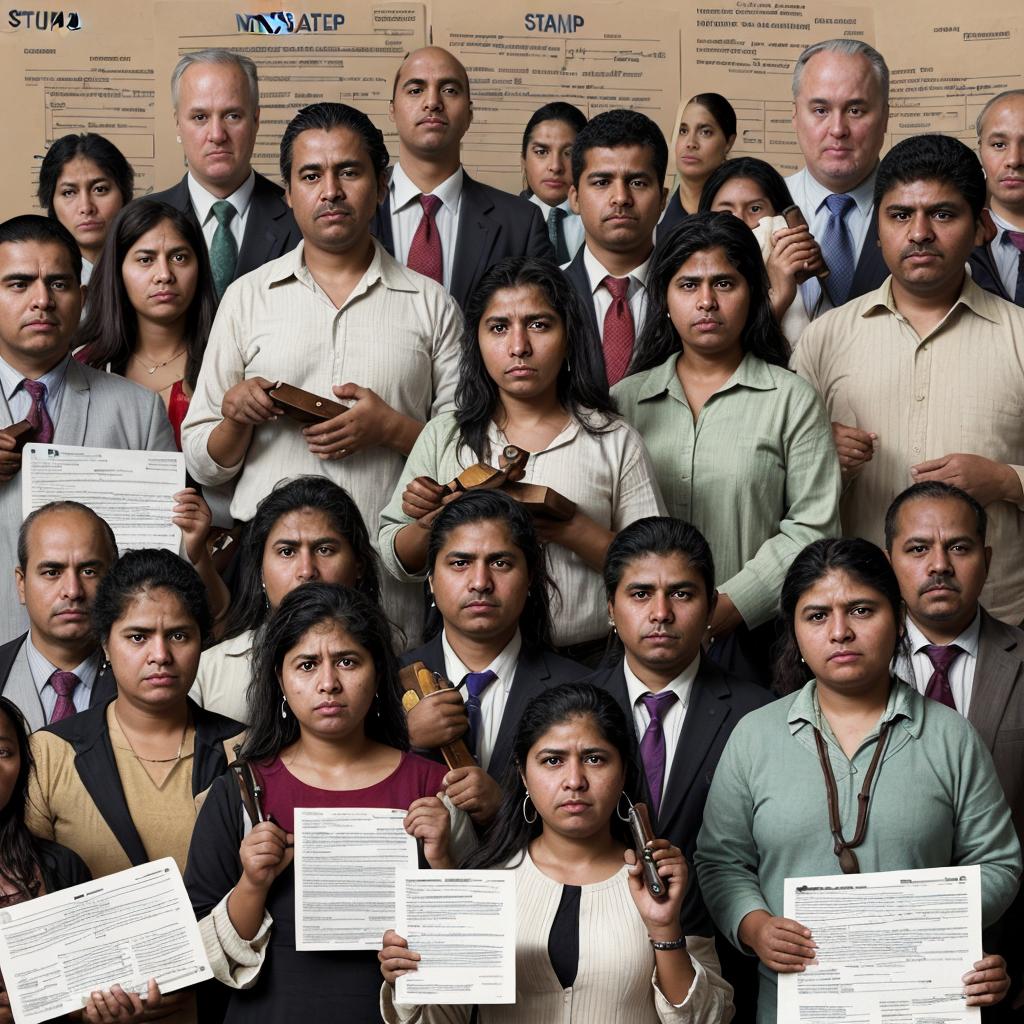9 Best Insights Into Immigrants’ Food Stamp Legal Ramifications

Are you curious about the legal implications surrounding immigrants and food stamps? Dive into our article to explore the nine best insights on this topic.
Discover the historical context, immigration status requirements, and eligibility restrictions for non-citizens.
Uncover the impact of the Public Charge Rule and the legal protections available for immigrant access.
Explore state-level variations in food stamp policies and recent court cases.
We’ll also discuss advocacy efforts, proposed reforms, and the potential future implications.
Get ready for an informed and analytical perspective on this complex issue.
Key Takeaways
- The Food Stamp Program was introduced during the Great Depression to alleviate hunger and assist low-income individuals.
- Different immigration statuses have different eligibility criteria for food stamps, with lawful permanent residents and refugees generally being eligible.
- Temporary visa holders and undocumented immigrants are generally not eligible for food stamps, with exceptions for certain categories.
- Receiving food stamps can impact visa applications and immigration status adjustments, and the Public Charge Rule can lead to denial of admission or green card/visa applications.
Historical Background and Context
To understand the current legal ramifications of food stamps for immigrants, it’s important to delve into the historical background and context. The history of food stamps in the United States dates back to the Great Depression when the federal government introduced the Food Stamp Program to alleviate hunger and assist low-income individuals and families. Over the years, the program has undergone significant changes, including expansions and reforms, to address the evolving needs of the population.
In 1996, the Personal Responsibility and Work Opportunity Reconciliation Act (PRWORA) was enacted, which imposed restrictions on certain immigrants’ eligibility for federal benefits, including food stamps. Under PRWORA, most legal immigrants are required to wait five years from the date of their entry into the United States before they can become eligible for food stamps. However, there are exceptions to this waiting period, such as for refugees and asylees who are eligible immediately upon arrival.
Understanding the historical context of food stamps for immigrants is crucial in comprehending the current legal landscape. The immigration status requirements, which will be discussed in the subsequent section, further shape the eligibility criteria for immigrants seeking food stamp benefits. These requirements vary depending on factors such as the type of immigration status, duration of residency, and other eligibility factors.
Immigration Status Requirements
When it comes to eligibility for food stamps, immigration status requirements play a crucial role. Understanding the impact of receiving food stamps on one’s immigration status is essential for immigrants navigating the system.
It’s important to analyze the specific regulations and policies surrounding this issue to gain a comprehensive understanding of the legal ramifications immigrants may face when applying for or receiving food stamps.
Eligibility for Food Stamps
If you’re an immigrant, your eligibility for food stamps depends on your immigration status.
The Supplemental Nutrition Assistance Program (SNAP), commonly known as food stamps, is a federal program that provides assistance to low-income individuals and families to purchase food.
To be eligible for SNAP benefits, immigrants must meet certain criteria. Generally, lawful permanent residents (green card holders) and refugees are eligible for food stamps. However, immigrants in other categories, such as those with temporary visas or undocumented immigrants, are generally not eligible.
There are exceptions to these rules, such as certain immigrants who’ve been in the United States for at least five years or those who’ve been granted humanitarian protection.
It’s important for immigrants to understand their specific immigration status and its impact on their eligibility for food stamps.
Impact on Immigration Status
Understanding the impact of your immigration status on food stamp eligibility is crucial.
Here are three key considerations regarding the impact of immigration status requirements on your ability to receive food stamps:
- Immigration Status: Your immigration status plays a significant role in determining your eligibility for food stamps. Generally, lawful permanent residents (green card holders) are eligible to receive benefits, while undocumented immigrants are not. However, there are exceptions for certain categories of immigrants, such as refugees, asylees, and victims of trafficking.
- Public Charge Rule: The public charge rule, which came into effect in February 2020, considers an immigrant’s likelihood of becoming dependent on government assistance when determining their immigration status. Receiving food stamps can be a factor in the public charge determination and may impact your ability to obtain or renew a visa or adjust your immigration status.
- Mixed-Status Families: If you’re part of a mixed-status family, where some members are eligible for benefits and others are not, it’s important to understand how this can affect your household’s food stamp eligibility. Eligible members can still receive benefits, but the amount will be prorated based on the number of eligible individuals.
Being informed about these immigration status requirements will help you navigate the food stamp system and make informed decisions regarding your eligibility.
Public Charge Rule and Its Impact
The Public Charge Rule has significant legal consequences for immigrants and their access to benefits. Under this rule, immigrants who are deemed likely to become a public charge can be denied admission into the United States or have their applications for green cards or visas denied.
This can have a profound impact on immigrants’ ability to access important social safety net programs, such as food stamps, and can further exacerbate their financial hardships.
Legal Consequences of Public Charge
To fully comprehend the legal ramifications of the Public Charge rule and its impact on immigrants’ eligibility for food stamps, you must consider a specific quantifier determiner.
The legal consequences of the Public Charge rule are as follows:
- Increased scrutiny: Under the Public Charge rule, immigrants applying for food stamps may face heightened scrutiny regarding their ability to support themselves financially. This means that their income, assets, and overall financial stability will be closely examined.
- Risk of denial: If immigrants are deemed likely to become a public charge, their eligibility for food stamps may be denied. This determination is based on factors such as income, education, and health, among others.
- Immigration status impact: The Public Charge rule may also have implications for immigrants’ overall immigration status. A negative determination could potentially affect their ability to obtain or maintain lawful immigration status.
It is crucial for immigrants to understand these legal consequences in order to make informed decisions regarding their eligibility for food stamps.
Immigrants’ Access to Benefits
As an immigrant, you may be wondering about your access to benefits and how the Public Charge rule impacts your eligibility.
The Public Charge rule, which was implemented in February 2020, aims to determine whether immigrants are likely to become reliant on public benefits in the future, potentially impacting their ability to obtain green cards or visas.
Under this rule, individuals who receive certain public benefits, such as food stamps or housing assistance, may be considered a public charge. However, it’s important to note that not all immigrants are subject to this rule.
Certain groups, such as refugees, asylees, and some victims of domestic violence, are exempt from the Public Charge rule.
It’s crucial for immigrants to understand their specific circumstances and seek professional advice to determine their eligibility for benefits under the Public Charge rule.
Eligibility Restrictions for Non-Citizens
How can non-citizens qualify for food stamps?
While food stamps, officially known as the Supplemental Nutrition Assistance Program (SNAP), primarily serves U.S. citizens, there are certain eligibility restrictions for non-citizens. Here are three key factors to consider:
- Immigration Status: Non-citizens must have a certain immigration status to be eligible for food stamps. Generally, lawful permanent residents (green card holders) and refugees are eligible, while undocumented immigrants and most temporary visa holders are not.
- Time in the U.S.: Non-citizens must also meet specific residency requirements. Generally, they must have resided in the United States for at least five years as a lawful permanent resident or have a qualifying immigration status for at least five years. However, refugees and asylees are exempt from this requirement.
- Public Charge Rule: In addition to immigration status and residency requirements, non-citizens must also consider the public charge rule. This rule considers whether an individual is likely to become primarily dependent on government assistance. Non-citizens who are deemed a public charge may be ineligible for food stamps.
Understanding the eligibility restrictions for non-citizens is crucial in determining who can access food stamps. However, it’s essential to also consider the legal protections in place for immigrant access to these benefits.
Transitioning into the subsequent section about ‘legal protections for immigrant access’, it’s important to examine how these protections can impact eligibility and ensure equal access to food stamps for all individuals, regardless of their immigration status.
Legal Protections for Immigrant Access
While non-citizens face eligibility restrictions for food stamps, there are legal protections in place to ensure immigrant access to these benefits. These protections are crucial in safeguarding the well-being of immigrant communities, especially those facing economic hardships.
One such protection is the “qualified immigrant” status, which allows certain immigrants to access food stamp benefits. This includes lawful permanent residents (green card holders), refugees, asylees, and individuals granted withholding of deportation. Additionally, immigrant children who entered the United States before August 22, 1996, are also eligible for food stamps regardless of their immigration status.
To illustrate the impact of these legal protections, consider the following table:
| Immigrant Category | Eligibility for Food Stamps |
|---|---|
| Lawful Permanent Residents (Green Card Holders) | Eligible |
| Refugees | Eligible |
| Asylees | Eligible |
| Individuals Granted Withholding of Deportation | Eligible |
| Immigrant Children who entered before August 22, 1996 | Eligible |
This table demonstrates that certain immigrants, despite not being citizens, have legal protections that enable them to access food stamp benefits. By providing these protections, the government recognizes the importance of ensuring the basic needs of all individuals, regardless of their immigration status. These legal safeguards contribute to a more equitable and inclusive society, where everyone has access to the support they need to thrive.
State-Level Variations in Food Stamp Policies
To understand the implications of immigrants’ access to food stamp benefits, it’s important to explore the variations in food stamp policies at the state level. These policies differ from state to state, and understanding the differences can help shed light on the challenges immigrants face when it comes to accessing these benefits.
Here are three key variations in food stamp policies at the state level:
- Eligibility criteria: Each state has its own set of eligibility criteria for food stamp benefits. While some states have more lenient criteria, allowing a broader range of immigrants to qualify, others have stricter requirements that may exclude certain immigrant populations.
- Waiting periods: Some states impose waiting periods before immigrants can receive food stamp benefits. These waiting periods can range from a few months to several years. This can significantly delay the ability of immigrants to access the support they need during difficult times.
- Documentation requirements: States may have different documentation requirements for immigrants applying for food stamp benefits. These requirements can include proof of immigration status or work authorization. The complexity and stringency of these requirements can pose challenges for immigrants, especially those who may have limited access to the necessary documents.
Recent Court Cases and Interpretations
Continuing the discussion on state-level variations in food stamp policies, recent court cases and interpretations have further shaped the legal landscape surrounding immigrants’ access to these benefits.
One notable case is the Supreme Court’s ruling in the case of Department of Homeland Security v. Regents of the University of California, which upheld the Deferred Action for Childhood Arrivals (DACA) program. This ruling has significant implications for immigrant eligibility for food stamps. Under DACA, certain undocumented immigrants who arrived in the United States as children are granted temporary protection from deportation and are eligible for work permits. As a result of this ruling, DACA recipients may now be eligible for food stamps in states that include them as a qualified immigrant category. However, it’s important to note that the eligibility of DACA recipients for food stamps may still vary depending on state-level policies.
Another recent case that has shaped the legal landscape is the Ninth Circuit Court of Appeals’ decision in the case of California Food Policy Advocates v. Department of Agriculture. In this case, the court held that the Department of Agriculture’s attempt to restrict food stamp benefits for certain non-citizens was a violation of federal law. This ruling reaffirms that non-citizens who meet the eligibility requirements can’t be denied food stamp benefits solely based on their immigration status.
These recent court cases and interpretations highlight the evolving nature of the legal framework surrounding immigrants’ access to food stamps, and demonstrate the importance of staying informed about the latest developments in this area.
Advocacy Efforts and Proposed Reforms
Advocacy organizations are actively working towards reforming food stamp policies that affect immigrants. These organizations are dedicated to advocating for the rights and well-being of immigrant communities and believe that current food stamp policies are discriminatory and unfair.
Here are three key advocacy efforts and proposed reforms that are being pursued:
- Expanding eligibility criteria: Advocacy organizations argue that the current eligibility criteria for food stamp programs disproportionately impact immigrants. They advocate for expanding eligibility to include more categories of immigrants, such as those with temporary protected status or those who are victims of trafficking or domestic violence. By broadening the criteria, more immigrants would have access to the support they need.
- Simplifying the application process: The current application process for food stamps can be complex and confusing, especially for immigrants with limited English proficiency. Advocacy organizations propose simplifying the application process by providing clearer instructions, multilingual materials, and assistance from culturally competent staff. This would ensure that all eligible immigrants can easily navigate the system and receive the benefits they’re entitled to.
- Removing barriers to access: Many immigrants face barriers to accessing food stamps due to factors such as language barriers, lack of transportation, or fear of immigration enforcement. Advocacy organizations advocate for removing these barriers by providing language assistance services, expanding outreach efforts, and ensuring that immigration status isn’t a barrier to accessing food stamps. This would ensure that all immigrants, regardless of their circumstances, can access the support they need to feed themselves and their families.
Future Outlook and Potential Implications
Expanding eligibility criteria and simplifying the application process are crucial steps towards creating a more inclusive and equitable food stamp system for immigrants.
One potential implication of expanding eligibility criteria for immigrants could be an increase in the number of individuals and families who are able to access food stamp benefits. This could lead to a reduction in food insecurity among immigrant communities, as more individuals would have access to the necessary resources to meet their basic needs.
Additionally, simplifying the application process could make it easier for immigrants to navigate the system and receive the benefits they’re entitled to. This could result in a higher participation rate among eligible immigrants, further reducing food insecurity within these communities.
However, there are also potential challenges and considerations that may arise from these reforms. For instance, an increase in the number of individuals eligible for food stamps could place a strain on the program’s resources and funding. It may be necessary to allocate additional funds to ensure that the program can adequately meet the increased demand.
Additionally, simplifying the application process may require additional resources and staff to effectively process and review applications. Ensuring that these resources are available and properly allocated will be crucial to the success of the reforms.
Frequently Asked Questions
Can Non-Citizens Receive Food Stamps?
Yes, non-citizens can receive food stamps. However, eligibility requirements vary based on immigration status. Some non-citizens may be eligible for certain benefits while others may be subject to restrictions or limitations.
What Are the Consequences for Immigrants Who Receive Food Stamps While Not Meeting the Eligibility Requirements?
If immigrants receive food stamps without meeting eligibility requirements, they may face legal consequences. These could include fines, deportation, or even being barred from obtaining citizenship in the future. It’s important to understand the potential ramifications.
Are There Any Exceptions or Waivers for Immigrants Who Are Unable to Meet the Immigration Status Requirements?
If you’re an immigrant who can’t meet the immigration status requirements for food stamps, there may be exceptions or waivers available. These exceptions or waivers could allow you to receive food stamps despite your immigration status.
How Do State-Level Variations in Food Stamp Policies Affect Immigrants’ Access to Benefits?
State-level variations in food stamp policies affect immigrants’ access to benefits. These variations can create a complex and confusing system that immigrants have to navigate. Understanding these policies is crucial for immigrants seeking assistance.
What Are Some Specific Proposed Reforms or Changes to Food Stamp Policies That Advocates Are Pushing For?
Advocates are pushing for specific proposed reforms or changes to food stamp policies. These changes aim to address the legal ramifications faced by immigrants and improve their access to benefits at the state level.



